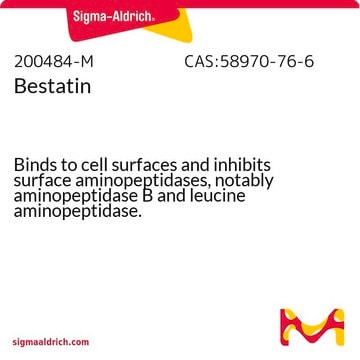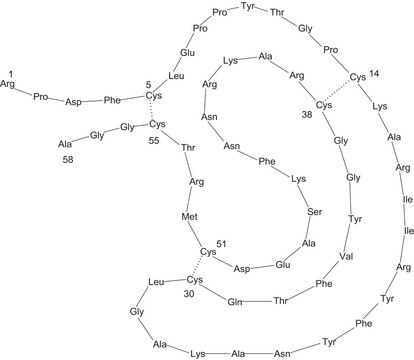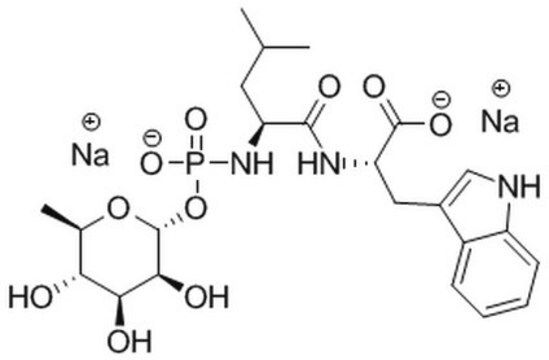B8385
Bestatin hydrochloride
powder, ≥98% (HPLC)
Synonym(s):
N-[(2S,3R)-3-Amino-2-hydroxy-4-phenylbutyryl]-L-leucine hydrochloride
About This Item
Recommended Products
product name
Bestatin hydrochloride, ≥98% (HPLC)
biological source
synthetic (organic)
Assay
≥98% (HPLC)
form
powder
mp
216 °C
solubility
water: 25 mg/mL, clear to very slightly hazy, colorless
antibiotic activity spectrum
neoplastics
Mode of action
enzyme | inhibits
storage temp.
−20°C
SMILES string
O=C(N[C@@H](CC(C)C)C(O)=O)[C@@H](O)[C@H](N)CC1=CC=CC=C1.Cl[H]
InChI
1S/C16H24N2O4.ClH/c1-10(2)8-13(16(21)22)18-15(20)14(19)12(17)9-11-6-4-3-5-7-11;/h3-7,10,12-14,19H,8-9,17H2,1-2H3,(H,18,20)(H,21,22);1H/t12-,13+,14+;/m1./s1
InChI key
XGDFITZJGKUSDK-UDYGKFQRSA-N
Looking for similar products? Visit Product Comparison Guide
General description
Biochem/physiol Actions
Preparation Note
Storage Class Code
11 - Combustible Solids
WGK
WGK 3
Flash Point(F)
Not applicable
Flash Point(C)
Not applicable
Personal Protective Equipment
Certificates of Analysis (COA)
Search for Certificates of Analysis (COA) by entering the products Lot/Batch Number. Lot and Batch Numbers can be found on a product’s label following the words ‘Lot’ or ‘Batch’.
Already Own This Product?
Find documentation for the products that you have recently purchased in the Document Library.
Customers Also Viewed
Our team of scientists has experience in all areas of research including Life Science, Material Science, Chemical Synthesis, Chromatography, Analytical and many others.
Contact Technical Service











